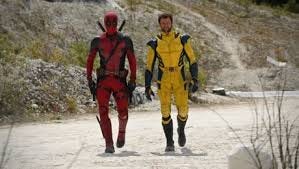Hollywood Shutdown: AI's Role Under Scrutiny Amidst Industry Turmoil
Here is a breakdown of everything you need to know regarding the SAG Hollywood strike, is AI really the culprit here?
In a historic move, over 11,000 workers with the Writers Guild of America (WGA) walked off set in early May, expressing dissatisfaction with the new streaming business models adopted by studios. The writers claim that these models pay them less for more work, cut into their residual payments – a crucial source of steady income – and erode their employment protections. This labor dispute took an unexpected turn when 160,000 performers from the Screen Actors Guild-American Federation of Television and Radio Artists (SAG-AFTRA) union joined the walkout on Friday, uniting writer and actor forces in the first joint strike since 1960.
Tectonic shifts brewing for years behind the scenes in Hollywood are at the core of the grievances. The rise of streaming services, changes in business models, and concerns about rapidly advancing AI technology have generated fear and uncertainty among writers and actors. The prospect of AI-written TV shows, and the replication of actors' bodies, voices, and mannerisms by studios have sparked concerns about the future of their craft and the potential replacement of human talent.
The studios, however, insist that Hollywood will remain human, but the unions' proposals to regulate AI technology have yet to be accepted. Despite weeks of formal negotiations, unions and studio leaders have failed to reach a compromise, leading to the breakdown of talks.
If you haven't seen the horrors in the latest season of Black Mirror, specifically the episode "Joan Is Awful," which has become the actor’s worst nightmare and the figurehead for the Screen Actors Guild (SAG-AFTRA) strike. The episode explores the idea of AI-generated likenesses being used without actors' consent, raising concerns among performers that AI technology could eventually replace them in the industry.
The impact of the double strike is far-reaching. Major studios, including Paramount, Warner, Netflix, and Amazon, are now unable to continue production as union members are barred from performing or engaging in any work. Project delays are growing daily, and the Hollywood landscape is poised for disruption.
This includes the latest production halt of ‘Deadpool 3’ . The news came shortly a few days after teasing the set, and images of Hugh Jackman and Ryan Renolds(Deadpool) on the set and in full costume surfaced the internet.
Hollywood executives now face the challenge of finding creative solutions to continue producing content without relying on striking writers and actors. The last major Hollywood strike in 2007 gave rise to reality TV as an alternative. Still, the industry is left speculating on what new ideas executives will develop to circumvent the current strike.
Additionally, marketing plans for upcoming movies are chaotic as actors cannot perform or promote their films. The film festival and awards cycle will also face disruptions, with uncertainties surrounding events like the Emmy Awards and the Oscars.
Internationally, the Hollywood strike is both a crisis and an opportunity for Hollywood's counterparts overseas. Actor unions worldwide express solidarity with SAG-AFTRA, but the strike may lead studios to invest more in international filming, potentially creating conflicting interests in some countries.
The future of the strike remains uncertain, with possibilities ranging from lasting through the end of the year to ending in a matter of days if agreements can be reached. Maintaining unity between the historically fractious SAG-AFTRA and WGA unions will significantly determine the strike's duration and outcome.
Fran Drescher, the charismatic president of SAG-AFTRA, and Adam Conover, a prominent member of the WGA negotiating committee, are key figures in the strike. The Alliance of Motion Picture and Television Producers (AMPTP) represents the major studios in negotiations.
This Hollywood strike marks a significant moment in entertainment industry history, with writers and actors united in their cause, demonstrating unprecedented solidarity. While the strike has significant implications for the entertainment world, its outcome could reshape Hollywood and the labor movement domestically and internationally.
This strike opens up an opportunity to create actual change within the current entertainment industry. Although the fear of AI is at the forefront of this situation, it isn’t the only reason why the sudden strike is happening. In my own opinion, I believe that there are ways to be able to incorporate AI software and systems into the industry that can help it grow and move forward ethically and programmatically. The how and the why is a matter of time as negotiations are being made.





